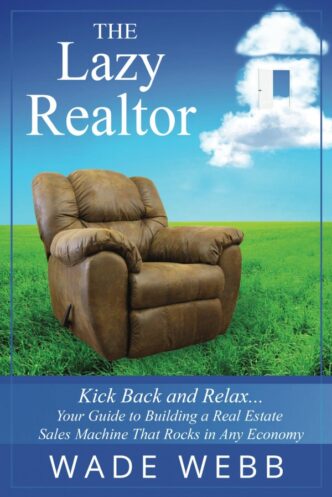
Simply put, it’s by focusing on THEM rather than yourself. Most agents they interview are going to talk mostly about themselves, their sales, their competence, blah blah blah. Any presentations or meetings with agents the buyer/seller attends is going to run together in their minds- what is there to set them apart? When you focus on the client, talking to them mainly about their own wants and needs, they will immediately get the feeling you’re there to help rather than to sell them. And that interaction lays the basis for a consumer experience they’ll want to repeat, or refer others to.
Tip #1 Focus on the client. Before you meet with your potential buyer or seller, you should know something about their motivations and what they’re looking for. You’re not there to cram all your successes down their throats, or talk about how you’re the best agent in town – you’re there to show you have their wants and needs in mind.
For Sellers... How do you make sure sellers know you are paying attention to them and their needs? Before meeting with them:
Pull tax records for the home
- Check MLS for past sales
- Drive by the home and take a photo- show you went the extra mile
- Ask if they’re interviewing other agents- ask to be their final interview if possible (you want to be their last, best impression)
- What YOU want from a seller is a client who is motivated to sell. Ask questions like “When do you need to move?” and “Do you need funds from this sale to move?” You want to qualify the seller during this meeting.
For Buyers It’s important to qualify buyers to make sure they’re serious about buying, but once you’ve done so, how do you set yourself apart to make sure they want to work with you? It’s the same tactic as working with sellers, above- LISTEN to what they’re asking you for. Ask leading questions, take notes, and find out what problems they’re trying to solve by moving. Focus your meeting on how you can help them fix those problems. See Tips #2 and #3, below.
Tip #2 Extreme Differentiation. Many agents naturally think their advertising or promotions should be centered around their services — who they are. This is a big mistake. Your business is about fulfilling desires or solving problems of your client. This is the entire reason for creating your Unique Selling Proposition. Your USP is a simple, yet powerful concept that forces your mindset into becoming client centered – what you will DO FOR THEM. It answers the question every prospect asks of you: “Why should I do business with YOU, instead of any other Agent, or any other option, including doing nothing at all, or what I’m doing now?” Your Unique Selling Proposition is the answer to that question.
Here are the elements of a great USP:
First, your USP must answer the question: “Why should I do business with YOU over any other options?” Or, “Why should I buy this home vs. any others on the market?” Or, “Why Should I consider this financing package over every other option?” Do you see that your USP can be applied anywhere in your practice where you want to influence people? People want to know what’s in it for them!
Second, your USP must be very SPECIFIC and MEANINGFUL to your targeted audience. By specific, I mean: is it meant for them and them alone? And by meaningful, are you offering something important to them? Don’t use vague generalities, like “multi-million dollar producer,” or “quality,” or “excellence.” They mean nothing to your audience.
Third, your USP must say something UNIQUE about you or your offer – something you do different from others. Something that sets you apart in a meaningful way, and be above and beyond your prospect’s normal expectations of service from a Realtor. That’s why words like “experienced,” is fluff that doesn’t work. Who doesn’t expect you to be experienced? There’s nothing Unique about that term. The same is true for the designations you think are so important but the average person has no clue what they mean or how they benefit from you having them.
Fourth, if you want to know if you have a really great USP, it must evoke the question from your audience….
“Oh really? How do you do that?”
Here are some great examples of Unique Selling Propositions:
- When Showing Homes: “The 22 point perimeter security system means you will feel safe and secure during those nights when your husband/wife is away.” (Turning a feature into a benefit)
- When Helping Buyers: “This financing package will save you over $2,000 in normal closing costs, and reduce your payment by $95 each month”
- When Making A Listing Presentation: “My exclusive 28 point marketing plan sells the average home for 97% of listing price, and in only 42 days”
Tip #3 Set Expectations and then EXCEED Them. Setting expectations with a client, and their great consumer experience, starts at the very first contact. Take detailed notes when talking to a prospective client (always keep a notepad handy), and follow-up with them immediately. They may have reached out to other agents, who took time to get back to them or maybe won’t remember much about the conversation they had with them at first. Be prepared with 3 important pieces of your toolset: Success Book, Marketing Plan, and a great listing presentation. End the presentation by talking about how you’ll communicate during the sales process, and what to expect as next steps. This period is key in helping your clients to understand what will happen next, when you’ll communicate, and every piece of the process. Then, work on exceeding those steps by going the extra mile. If you didn’t get the listing, it’s ok to ask why so you can improve for next time. If it’s not a mutual fit, that’s ok too.
Tip # 4: Follow up!! Here’s where MANY agents fail. Once the sale is over, they let the relationship drop away. You’ve gotten what you wanted- why bother working a completed transaction? WRONG. Your past clients are your most important source of referrals – they’ll even bring you repeat business if you maintain your contact with them. What do you usually do after a sale? Do you send a gift, like Steve Vaught? (click here to read Steve’s idea) Do you send a follow-up letter asking for your client’s testimonial or for referrals? You probably should be doing all of those things, but MOST importantly you’ll need to keep in touch with previous clients on at least a monthly basis.
Commit to monthly or don’t even start. The Direct Marketing Association reports that the optimum contact time is every 21 days. There have also been studies out there that say for every month you forget about your house list/clients, you lose 10% of them – another reason for monthly contact. Finally, the NAR reports the “average” contact program takes between 8 and 12 months to “start” working. We’ve cut that time in half with Service For Life!, but even if it takes 10 months to start the “market share engine” producing, that’s still a great deal, considering most agents never get it going.
Strength and courage,
Wade



